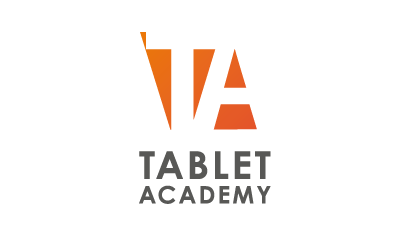What do teens really think about online learning?
We explore what post-school-age students want to do in the future, how they feel about online learning, and whether they would consider taking an online degree.

Do you remember being a teenager and worrying about your career choice? On the cusp of your future, trying to figure out your next steps? FutureLearn recently attended the Step Up Expo, an event designed to help school and college students explore their education and career options – and relieve some of that anxiety.
At the event, students found guidance on GCSE options, college choices, employment, training and gap year opportunities. Online learning is an invaluable tool for students, whether they want to learn a new skill, gain an introduction to a potential career, or supplement their university education – so of course, we attended the event.
We also wanted to speak to 16-18 year olds thinking about their futures and find out about their attitudes and understanding of online learning. Did they know it was a possibility for them? Had they tried FutureLearn before? We set up a short survey to find out more, and you can explore our findings in this article.


Event highlights
The Step Up Expo had a total of 7,241 visitors, including 5,677 students, 1,366 parents, 198 teachers, and 100 exhibitors. At the FutureLearn stand, we served over 300 hot drinks at our ‘Your future is brewing’ coffee stand, and had the chance to chat to lots of students and parents about the future of higher education and online learning opportunities.
We held two talks over the weekend – one about the top 10 trending jobs right now, where our partner, Accenture, spoke about in-demand careers, including factors like job satisfaction and salaries. Our other talk centred around different post-school pathways, including the possibility of taking an online degree.
Survey findings: What do teens think of online learning?
To gain a deeper insight into the perceptions and habits related to online learning among 16-18-year-olds, we conducted a short survey using a large touchscreen at our event stand. The survey was completed by 142 teenagers, providing valuable data that shed light on the following key aspects.

Post-school plans and the future
When we asked teens about their future plans, 55% of respondents expressed their intention to pursue university straight after school, while 29% were uncertain and 17% planned to enter the workforce immediately.
While this shows that a slight majority of school leavers want to attend university, 45% are unsure or have other plans, demonstrating that students don’t feel resigned to just one education pathway.
Online course experience and awareness of FutureLearn
A significant number of students (33%) had taken an online course before, but the majority (67%) had not yet explored this mode of learning, so attending the event was a great opportunity to raise awareness of online education and its different capabilities.
Only 19% of respondents had heard of FutureLearn before the event. This is understandable considering these students have been in full-time education for many years, and perhaps haven’t considered online learning outside of school before.
Awareness of online degrees
Next, the survey questions broached the topic of online degrees. The survey results revealed that 46% of respondents were aware of the possibility of pursuing a degree online, while the remaining 54% were unaware of this alternative.
The fact that the majority of students were unaware of online degrees highlights the need for more awareness around online learning – students who may not attend traditional universities due to the cost, lack of flexibility and life commitments (work and family) may find online degrees to be the perfect higher education alternative.


Benefits of online degrees
When asked about the most appealing aspects of online degrees, 39% of students emphasised the flexibility of learning anywhere, at any time – something that we value at FutureLearn. Whether you want to study from your living room sofa, on your train commute, at a cafe or on holiday – anything is possible with an online degree.
Looking at the other benefits of online degrees, 31% of students highlighted the cost-effectiveness, and 30% saw it as an opportunity to kickstart their careers while learning. You can learn more about the benefits of online degrees in our blog post on preparing for online university.
Drawbacks of online degrees
We were also curious about any concerns that students might have about pursuing an online degree. The results indicated that 32% of respondents were concerned about the lack of access to learning and social facilities, followed closely by 31% expressing concerns about the lack of social connection.
Additionally, 20% cited the inability to join social or sports clubs, while 17% were worried about not experiencing traditional campus learning.
Preferred online learning platforms
We wanted to gain insight into the most common platforms teens use for online learning. Notably, 61% of respondents reported using YouTube as their primary source for online learning, followed by TikTok at 25%.
It’s not altogether surprising that social media platforms like YouTube and TikTok are most commonly used for education within this age group – the majority of teens use social media on a daily basis, and learning on these platforms is delivered through short, highly engaging videos.
Insights such as this may be a useful consideration for us when creating online courses aimed at school or college-aged students in the future.
Final thoughts
It’s clear that 16-18 year olds have not yet explored all the possibilities of online learning. While they may choose to learn casually on social media, they’re not yet fully aware of the potential of high-quality, credible online courses, certifications and degrees, like ours – and it’s our job to spread awareness of these benefits.
By actively engaging with this new generation of learners, we hope to empower young people to acquire new skills online and pursue their desired career paths in a way that works for them.










